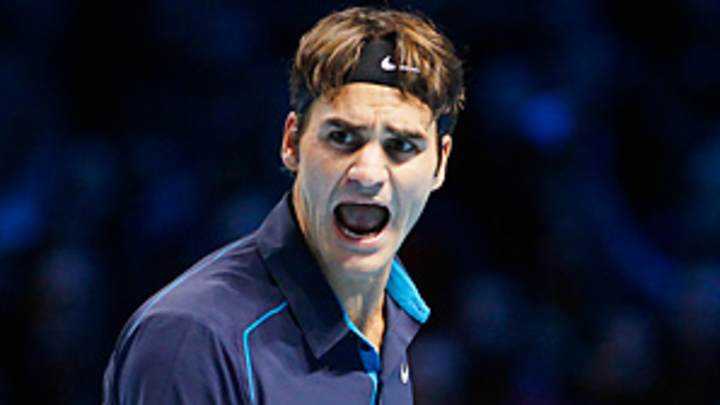Fresh Federer finishes season in finer form than his younger rivals

Novak Djokovic, winner of three Slams in 2011 and the runaway 2011 MVP, lost two matches and complained.
"There are tournaments, especially the ones toward the end of the year, where you don't feel 100 percent fresh," he said.
Second-ranked Rafael Nadal faltered as well -- as he so often does in autumn -- and looked musty and stale.
"I [have a] little bit less passion for the game," he lamented, "probably because I was a little bit more tired than usual."
Britain's Andy Murray, the hometown favorite, withdrew mid-event with a groin injury, wrought, he said, by the ravages of tennis' intolerably long season.
But even before the top players voiced their displeasure over the length of the season -- a rite of autumn that, unfortunately, accompanies every event held after the U.S. Open -- it was clear that they were playing at something considerably less than full strength. The calendar may be a tired discussion. But until it's addressed in a meaningful way by the new ATP leadership, the Tour leaves itself open to criticism and, worse, second-rate tennis at what it supposed to be a first-tier event.
As the rest of field ached (and bellyached), the oldest player in the draw looked remarkably crisp, barely breaking a sweat. Roger Federer, now 30, failed to win a major title in 2011 for the first year since 2002, and skeptics in the salon have suggested that the expiration date on his greatness has passed.
NGUYEN: More Federer milestones
But, in keeping with his tennis, he's offered an elegant and powerful rebuttal lately. Since losing, heartbreakingly, to Djokovic in the U.S. Open semifinals, Federer has gone 17-0, looking very much like the Fed of Old, serving lasers, taking command of points and relying on his singular genius to execute shots others players don't even conceive. On the fast indoor surface of London's O2 Arena, Federer could scarcely have been better, sweeping his matches, beating France's Jo-Wilfried Tsonga 6-3, 6-7 (6), 6-3 in the final and taking the title for the sixth time.
BTB: Federer-Tsonga highlights
For all the plaudits bestowed on Federer over the past decade, he's never gotten sufficient credit for his durability. "To bounce back and not lose a match from that moment on I think shows, again, how tough I am, the right decisions I can take," Federer said of his savvy scheduling over his career.
As a result, his level of play tends to get stronger as the year progresses. In nearly 1,000 career matches, not once has he retired from a match nor has he ever withdrawn midway through a tournament.
(Consider: Djokovic has three retirements this year alone and more than a dozen for his career.)
Some of this is a function of Federer's wiry physique. Plus, his game is low-impact; like Sandburg's Chicago Fog, Federer dashes around the court on little cat feet. But he also has been firm about scheduling, building in midseason R-and-R breaks, and -- unlike so many other top players -- resisting the lure of smaller events that guarantee fat appearance fees but exact a physical price.
Not unlike a scoreboard dot race, Djokovic was the winner in 2011, though his quest to turn in the best season in men's tennis history was undone by his inability to finish strong. While Federer ends the year ranked No. 3, his late surge gives him momentum heading into the 2012 Australian Open, which begins (gulp) in barely six weeks. For most players, the offseason is insufficiently short. For Federer, the new season can't come soon enough.
"I am happy that the season is over because it has been long, it has been grueling," Federer said. "But, yeah, I'm very happy and upbeat about what's to come."
